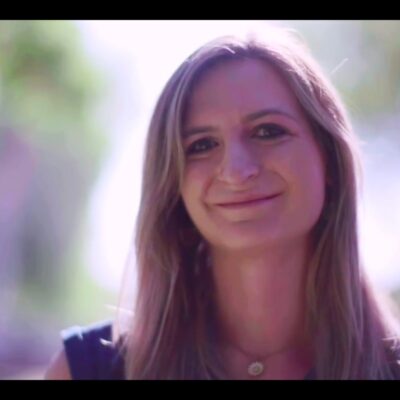Sally Littlefield - Twentieth Century American Culture
Sally Littlefield is a mental health advocate who lives with schizoaffective disorder, bipolar type, which is a combination of schizophrenia and bipolar disorder. She currently works in the Training Institute for the Mental Health Association of San Francisco, and her activism efforts have been featured on the television network A&E. Sally thanks her American Studies background for giving her the ability to understand the very real role culture plays in shaping our society. This knowledge has proven invaluable in her work developing public awareness campaigns that aim to break cultural norms that disempower people living with psychiatric disabilities.
Area of Concentration Courses
American Studies 102: The Suburbs
American Studies C111E: The Great Exhaling: Culture, Politics, and History, 1946-1952
American Studies H110: Honors Seminar: Bay Area in the 1970s
Education 183: High School, The Movie
Music 137AC: Music of the Civil Rights Era
Thesis
Sally Littlefield : - Women's Sexual Liberation Comes of Age: Portrayals of Teen Female Sexuality in 1990s Popular Culture (Class of 2017)
Beginning in the 1970s, the womens liberation movement began to challenge traditional American cultural ideologies that stigmatized female sexual autonomy, and in the 1990s, this rhetoric began to be applied to teenaged girls in addition to older women. In her senior honors thesis, Sally Littlefield calls this phenomenon the teen female sexual revolution. With the advent of the teen female sexual revolution came an increase in portrayals of sexual teens in magazines, television, films, and popular music, signaling how impactful this movement was in American culture. However, not all of these portrayals were as feminist and sex positive as the original movement that sparked them. Though some indicated positive change, some narratives surrounding teen female sexuality presented by popular culture were indicative of a widespread backlash against this movement. In this essay, Sally examines the conventions of portrayals of teen female sexuality in American popular culture present in the 1980s, exploring how these conventions align with the longstanding taboos against teen female sexuality. She then discusses how American popular culture of the 1990s subverted these conventions, in ways both empowering and disempowering for young women. Sally argues that 1990s popular culture expressed both support of and backlash against teen female sexuality. The thesis concludes with the observation that much of the convention-shattering tropes of the 1990s that directly addressed teen female sexuality seem to have faded by the early 2000s, indicating that the teen female sexual revolution was short-lived.
